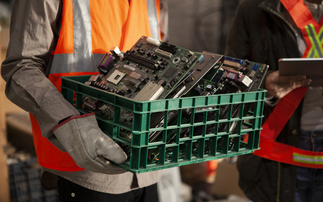Andrew Sibley of carpet manufacturers Desso, highlights how companies can benefit from closed-loop manufacturing
The pace of development over recent decades has seen unprecedented advances in technology, prosperity and consumption - and a world facing the challenges of climate change and resource depletion. However,...
To continue reading this article...
Join BusinessGreen
In just a few clicks you can start your free BusinessGreen Lite membership for 12 months, providing you access to:
- Three complimentary articles per month covering the latest real-time news, analysis, and opinion from Europe’s leading source of information on the Green economy and business
- Receive important and breaking news stories via our daily news alert
- Our weekly newsletter with the best of the week’s green business news and analysis





